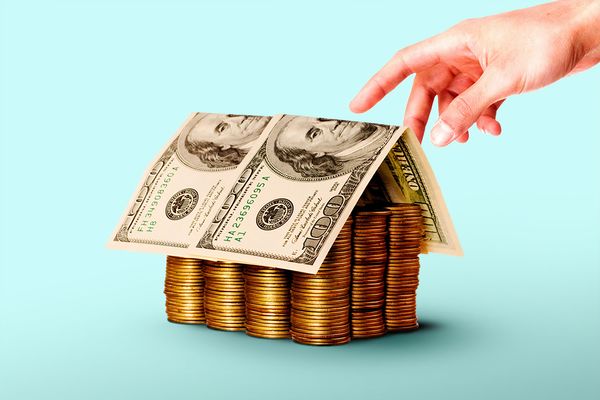How much is your home worth?
It’s always nice to know, but if you’re planning on selling your house in the near future or if your home will soon be assessed for property taxes, it’s vital that you understand its value.
However, there’s a big difference between your home’s assessed value and its market value.
What Is Market Value?
Market value refers to the amount of money a property will most likely bring in if you put it up for sale on an open market.
In other words, if you’re thinking about selling your home, it’s the factor that will tell you whether or not you can expect to turn a profit on the sale.
Experienced real estate agents understand that providing their clients with this number is one of the most important parts of their job. Each agent may have a slightly different approach, but they will all look at your house’s:
- Exterior Features: Everyone knows curb appeal is important, but your real estate agent will also assess your lot size, your house’s style, the condition of your exterior, and the availability of public utilities.
- Interior Features: The size of your house and how many rooms it has are important, as well. In addition, your real estate agent will look into its heating system, energy efficiency, and the condition of your appliances.
- Comparables: Also known as "comps", your real estate agent will want to research what houses that are comparable to yours have recently sold for in the same area. This will give them a good idea of what buyers are most likely willing to pay for your home.
- Supply and Demand: At the same time, if the number of buyers in your area has been dropping, that might not be the case. This is why your real estate agent will also look for any recent shifts in supply and demand.
- Location: Finally, we all know the importance of “location, location, location”, which is why your real estate agent will also evaluate your neighborhood, school district, crime rate, and other local factors that may affect your home’s price.
Market value isn’t just an important concept for sellers, either. Buyers often have their own agents come up with a value, so they have a better idea of what the home is worth without having to rely on the seller’s figures.
What Is Assessed Value?
The assessed value of a home is actually quite similar to its market value, except that it’s not a real estate agent who’s crunching the numbers this time.
Most counties employ house assessors to determine how much properties are worth and, thus, how much the owner needs to pay in property taxes.
To reach this number, assessors also rely on comps, how much recent improvements may have added to the home’s value, any rental income the owner may be receiving from it, and even how much it would cost to replace the house if something were to destroy it (e.g. a fire, flood, tornado, etc.).
How the Assessed Value of Your Home Impacts Your Taxes
Once the assessor has finished their evaluation, they deduct any tax exemptions that the homeowner may qualify for and multiply the result by the “assessment rate.” Each tax jurisdiction comes up with their own assessment rate, but it’s typically between 80% and 90%.
For example, if the assessor decides that your home is worth $350,000 and your county’s tax rate is 85%, the taxable value of your house is $297,500. Your local government will use that number to calculate how much you’ll owe in property taxes.
So, the big difference between assessed value and market value is that you have far more control over how the latter will affect your bank account. If the market value is too low, you could decide not to sell. Maybe you’ll wait a year or two until some renovations are done or the market swings in your favor.
On the other hand, there’s no escaping the fact that the state and local governments will demand you pay property taxes based on how an assessor priced your home. Keep in mind that the assessed value is also different than a third party appraisal.
How to Challenge the Assessed Value of Your Home
That being said, you’re not completely without options.
If you’re like a lot of Americans, you’ll probably be a little taken aback when you receive your assessment.
In fact, according to the National Taxpayers Union Foundation:
“Statistics vary by area, but experts estimate that between 30 and 60 percent of taxable property in the United States is over-assessed, and this leads to higher property tax bills.”
An inflated assessed value can be especially shocking if you just purchased the house and, therefore, are extremely familiar with its market value.
In that case, visit your local tax assessor’s office and file an application for tax abatement. The rules are different for this process in every state, so you should stop by the town hall for all the information you need to make sure you’re following procedure. Usually, you have to file your tax-abatement application on or before the day your first property-tax payment is due.
Your town’s assessor may also be allowed months to respond to your request.
If your abatement request is rejected, you still have the right to appeal it, as well. Some homeowners opt to get their home appraised by an independent appraisal company to support their appeal.
Again, find out your state’s specific rules before proceeding. Even if you haven’t received your house’s assessed value, understanding what’s required to respond now will make it that much easier to do so if the numbers come back high.
Speak with a Real Estate Agent Before Pricing Your Home
The importance of your house’s market value can’t be overstated. No matter how much you believe it’s worth, the amount someone will pay for it might be completely different. That’s why you need the help of an experienced real estate agent.
However, that market value is also important so you know whether or not the IRS is aiming a bit high with their assessment. Instead of taking them at their word and paying what they want, having an actual assessment will tell you if it’s worth appealing.
At SimpleShowing, we make it easy to connect with qualified real estate agents to help in this process. Even better, when you use one to sell your home, you keep thousands more in equity when you sell with our 1% listing fee.






